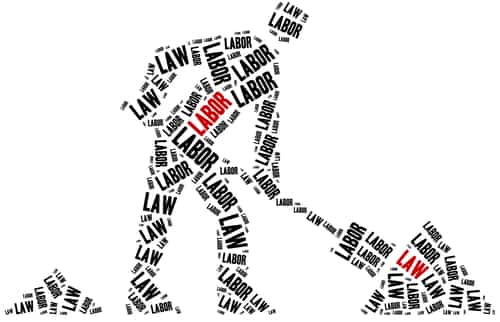Bahrain Labour Law
 Bahrain's labor law serves as the cornerstone for regulating the employment relationship between employers and employees, ensuring fair treatment, and fostering a healthy work environment. This article provides an overview of key aspects within Bahrain's labor law, emphasizing the rights and responsibilities it establishes for both parties. Legislative Decree no. 36 of 2012 promulgate Bahrain’s Labour Law.
Bahrain's labor law serves as the cornerstone for regulating the employment relationship between employers and employees, ensuring fair treatment, and fostering a healthy work environment. This article provides an overview of key aspects within Bahrain's labor law, emphasizing the rights and responsibilities it establishes for both parties. Legislative Decree no. 36 of 2012 promulgate Bahrain’s Labour Law.
Employment Contracts
Written employment contracts are mandatory under Bahrain's labor law. These contracts must include crucial details such as job responsibilities, working hours, compensation, and other terms of employment. This requirement aims to establish clarity and prevent disputes.
Contract for an indefinite term
When an employer terminates an employee who has an indefinite-term contract within the probationary period, (if within three months probationary period) the employee shall not be entitled to compensation. However, if that termination is an unfair dismissal, then the employee is entitled to compensation which is equivalent to one month's wages. In the event that termination takes place after the three-month probationary period, without cause then the employee shall be entitled to get compensation equivalent to two days' wages for each month of service. The minimum compensation will be one month's wages and the maximum shall be 12 months' wages.
Contract for a definite term
In the event that the employer terminates an employee's contract of employment for a definite term with or without lawful cause, then the employee will be entitled to get a compensation that is equivalent to the wages for the remaining period of the contract. If both parties do not mutually agree then a lesser compensation, shall not be less than three months' wages or the remaining period of the contract, whichever is less.
Contract for performance of a specific work
 Leaving indemnity
Leaving indemnity
Article 116 of the Bahraini Labour Law explains that when a worker who is not subject to the Bahrain Social Insurance Law namely a foreign employee or a Bahraini employee whose wages exceed BD 4,000 shall be entitled, to get a leaving indemnity at the rate of half a month's wage for each of the first three years of employment and one-month wages for each of the subsequent years.
Working Hours and Overtime
Bahrain's labour law defines standard working hours to prevent employee overwork and promote work-life balance. The law also outlines regulations for overtime, ensuring that employees are fairly compensated for additional hours worked.
Wage Protection
The law sets guidelines for wage calculation, payment frequency, and permissible deductions. These provisions safeguard employees' financial rights, ensuring they receive fair and timely compensation for their work.
Occupational Safety and Health
Bahrain's labour law prioritizes the safety and health of workers. Employers are obligated to provide a secure working environment, including necessary training, safety equipment, and protocols to prevent accidents and protect employees from occupational hazards.
Termination and Severance
The law stipulates procedures for terminating employment contracts, notice periods, and the rights of employees in case of dismissal. These regulations offer a fair process for both employers and employees, preventing arbitrary terminations and ensuring due consideration. Article 27 of the Labour Market Regulatory Law compels the employer to a travel ticket back to their home country.
Justified termination
Poor performance
An employer may terminate a contract of employment on the grounds of poor performance by giving the worker notice of the aspects of such inefficiency. This notice must last at least 60 days to give the employer a reasonable opportunity to be heard. Upon expiry of this period and in the event that the employee fails to achieve the required efficiency level, then the employer may terminate the contract of employment after giving 30 days prior notice of the termination and will not be entitled to get any compensation.
Redundancy
As per Article 110 of the Bahraini Labour Law, If an employer terminates a contract of employment on the grounds of total or partial closure of the establishment, scaling down of its business, or replacement of its production system then the employer may give notice to the Ministry of Labour concerning the reason for termination 30 days prior to the date of giving the worker 30 days’ notice of the termination and the employee shall be entitled to receive a bonus equivalent to one half of the compensation referred to above relating to unjustified termination.
Labor Dispute Resolution
Bahrain's labor law includes mechanisms for resolving disputes between employers and employees. This may involve mediation or adjudication to reach a fair resolution, contributing to overall workplace stability. All claims related to employment must be first filed before the Labour Case Administration Office (LCAO).
 Conclusion:
Conclusion:
Bahrain's labor law plays a pivotal role in establishing a balanced and just framework for employment relationships. By addressing critical aspects such as working hours, employment contracts, wages, occupational safety, termination procedures, and dispute resolution, the law strives to create an environment where the rights of both employers and employees are protected. As Bahrain continues to evolve economically, its commitment to a robust labor regulatory framework remains essential for sustaining a fair and productive workforce.
 English
English
 عربي
عربي Русский
Русский 官话
官话 português
português
 Türk
Türk 

















